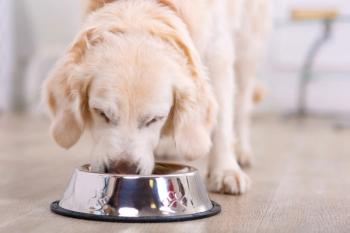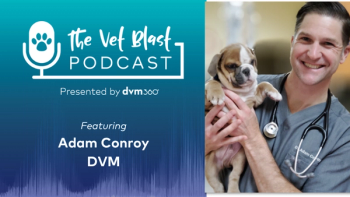
Trash talking: Vet slapped with $20,000 bill as haulers, regulators crack down on waste disposal
Vet slapped with $20,000 bill as authorities crack down on waste disposal.
Providence, R.I. — Cash-strapped government agencies and trash haulers in Rhode Island are warning veterinarians about medical waste-disposal rules, saying they aren't going to repackage waste loads containing renegade medical waste for free anymore.
One Rhode Island practice learned this lesson the hard way, before the warning was issued, by getting hit with the more than $20,000 bill to repackage a 30-yard waste load that was rejected at the landfill because it contained used needles, pipettes filled with blood and a few blood samples in vials.
"They thought it was unreasonable to consider it medical waste because it didn't contain any pathogens," says Mark Dennen, principal environmental scientist as the Rhode Island Department of Environmental Management (RIDEM), of the unnamed veterinary clinic at fault. "But there's no way of knowing looking at a needle to tell if it's contaminated with a zoonotic disease or, for humans, HIV. We treat all sharps as contaminated because there's no way you can get to the level of knowing anything is totally safe."
Nearly two years ago, the waste management company stopped absorbing the cost to repackage medical waste that ends up in its landfill. The costs, which can range from $20,000 to $30,000, are passed onto waste haulers, Dennen says. But in this case, there were items in the waste load that identified the veterinary clinic. It only takes one stray item to taint a waste load that should be processed as medical waste, he explains. The clinic could have been fined up to $25,000 by RIDEM as well, but Dennen says he thinks the clinic learned its lesson.
"This isn't something that only happens with veterinarians, but several other hospitals and doctors," he says, adding this is the first time a veterinarian has been caught mixing medical waste with standard trash. "We could go after the veterinarian and fine them, but we opted not to do so, because the cost of repacking is devastating enough."
But other veterinarians might not know the rules, so RIDEM sent a letter to all veterinarians in the state, warning them not to make the same mistake.
"Most of them are very small businesses. We hate to see that happen. In this case, it seemed it was just them not realizing what was regulated," Dennen says. "We'd really rather see them be compliant than hit them with such a severe cost."
But medical waste laws are tricky to follow, as they vary by state. The American Veterinary Medical Association (AVMA) has made an attempt to provide some clarity to the patchwork nature of medical waste-disposal laws with a new waste-disposal policy, approved by the AVMA Executive Board in July.
The policy advises veterinarians to be aware of state and federal regulations, adding that incineration "provides the highest level of best management." The policy also offer guidelines on containers for sharps and drug disposal. It notes that veterinary clinics should blacken out clinic or personal information on medical waste containers or packaging. Less traditional items considered medical waste include discarded surgical gloves, culture dishes and other glassware that could break in landfills, blood-soaked bandages and even swabs used to inoculate cultures, explains Adrian Hochstedt, AVMA's assistant director of state legislative and regulatory affairs.
The policy was created in part to help head off required participation by veterinarians by the Environmental Protection Agency (EPA) that would require DVMs to fill out a lengthy survey on their pharmaceutical disposal practices. The EPA is cracking down on pharmaceutical disposal after studies revealed high concentrations of drugs in waterways. AVMA was successful in getting veterinarians exempted from the survey earlier this year, but EPA officials say they have not ruled out participation by the veterinary profession. In fact, the agency is meeting with "hundreds of stakeholders and conducting numerous site visits to hospitals, long-term care facilities and veterinary facilities." Once it evalutes the environmental impact of pharmaceutical disposal in these facilities, it will decide its next step. A report is expected to be completed at the end of 2009, EPA reports.
Veterinarians are believed to be a minimal part of the problem, says Dr. Larry Dee, a former member of the AVMA Committee on Environmental Issues. Dee served on the committee when the EPA began looking at pharmaceutical disposal and says the EPA's interest is what led AVMA to try to create a document that would provide veterinarians with broad guidance on any medical waste disposal.
"We want to do the right thing, and we want to decrease our risks even further," adds Lynne White-Shim, assistant director of AVMA's Scientific Activities Division. "I do think veterinarians are already following through with these recommendations, but we just felt it was a good time to develop the policy and make sure veterinarians are on the same page and that they're educating their staff and clients."
Newsletter
From exam room tips to practice management insights, get trusted veterinary news delivered straight to your inbox—subscribe to dvm360.




